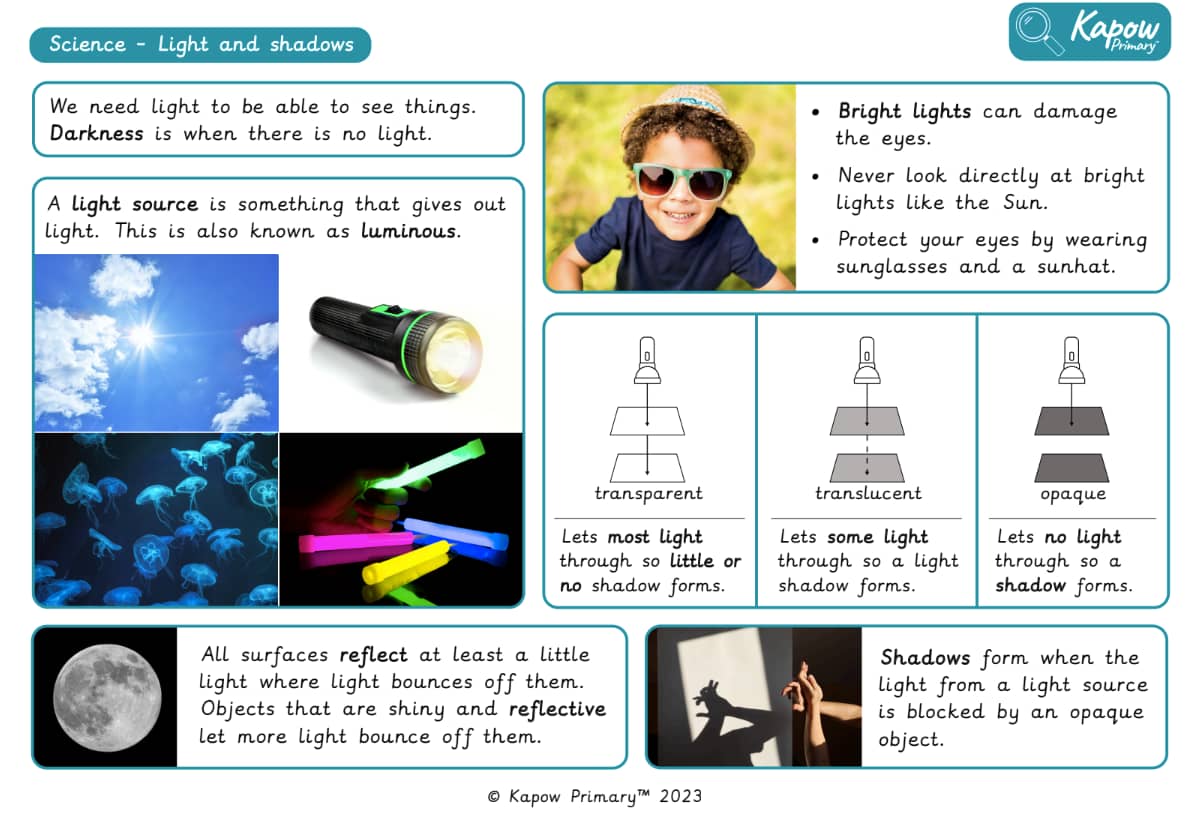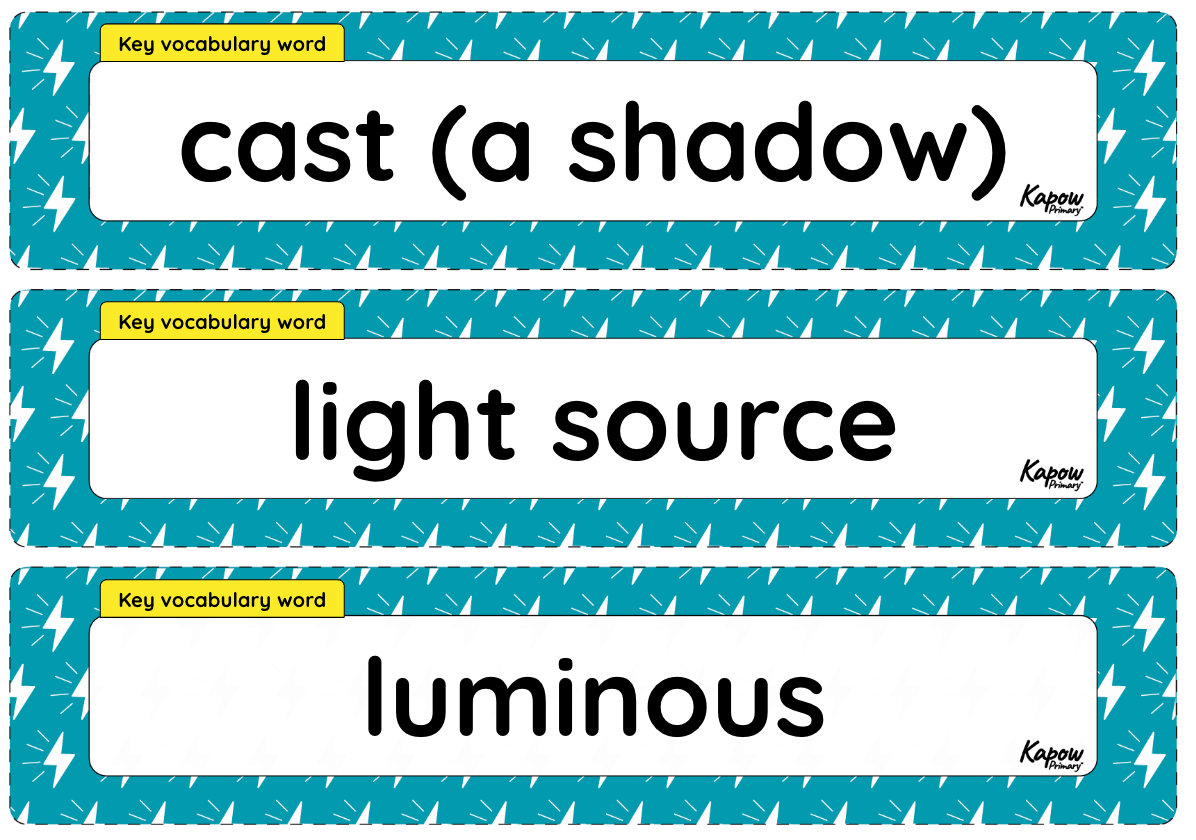Light and shadows
Exploring the link between light and darkness, observing reflections and investigating different factors that affect shadows.
The Curriculum and Assessment Review final report has been released. We’re reviewing the recommendations and planning for future updates. Learn more
- Subjects >
- Science >
- Key stage 2 >
- Year 3 >
-
Energy: Light and shadows
Unit outcomes
Pupils who are secure will be able to:
- Recall examples of light sources, objects that do not give out light and that darkness is the absence of light.
- Describe ways to protect eyes from harm.
- Describe what happens when light reflects, give examples of reflective surfaces or materials and describe factors that may affect the quality of a reflected image.
- Describe how shadows form and identify patterns between groups of materials and the shadows produced.
- Recall factors that affect the way a shadow appears, including what causes shadows to change throughout the day and factors that change the size of a shadow
- Describe the pattern of changing shadows throughout the day.
- Describe how the light source’s distance affects the shadow’s size.
- Explain why a particular material is appropriate to make a shadow puppet and use knowledge of shadows to animate it.
When working scientifically, pupils who are secure will be able to:
- Recall what information needs recording to decide the number of columns in a results table and suggest suitable headings for the results table.
- Record information in the correct columns.
- Identify if a question is testable, explain why and plan ways to answer a testable question.
- Identify and explain why something is an advantage or disadvantage of a method and suggest an improvement to the experiment.
- I can describe patterns in data and quote values as evidence of patterns in data.
- I can identify odd results that do not fit the pattern.
- I can use patterns to make predictions for missing data.
Please note that Kapow Primary Science lessons are designed to be 1 hour and 30 minutes long, to reflect the requirements of a core subject.
Suggested prior learning
Materials: Uses of everyday materials
Get startedLessons
Lesson 1: Sources of light
Knowledge
- To explain the role of light sources.
Working scientifically
- To plan and draw a results table.
Lesson 2: What is reflection?
Knowledge
- To compare light reflecting on different surfaces.
Lesson 3: Where do shadows come from?
Knowledge
- To recognise which materials cast a shadow.
Working scientifically
- To ask testable questions and plan how to answer them.
Lesson 4: Shadows throughout the day
Knowledge
- To summarise how shadows change throughout the day.
Working scientifically
- To evaluate a method.
Lesson 5: Investigating shadows
Knowledge
- To investigate how the distance of the light source affects the size of its shadow.
Working scientifically
- To find patterns in data and form conclusions.
Lesson 6: Using light and shadows
Knowledge
- To tell a story using shadow puppets.
Science in action
- To recall how different people work with light and shadows.
Key skills
Key knowledge
Related content
Unit resources

Knowledge organiser – Science Y3: Energy: Light and shadows
Aimed at pupils, two pages providing key facts and definitions from the unit ‘Light and shadows’.

Vocabulary display – Science Y3: Energy: Light and shadows
A display version of the key vocabulary from the unit 'Light and shadows'.
Cross-curricular opportunities
English: Spoken language, Reading – comprehension.
Mathematics: Number and place value, Measurement.
Geography: Locational knowledge, Place knowledge.
British values: Mutual respect, Democracy.

